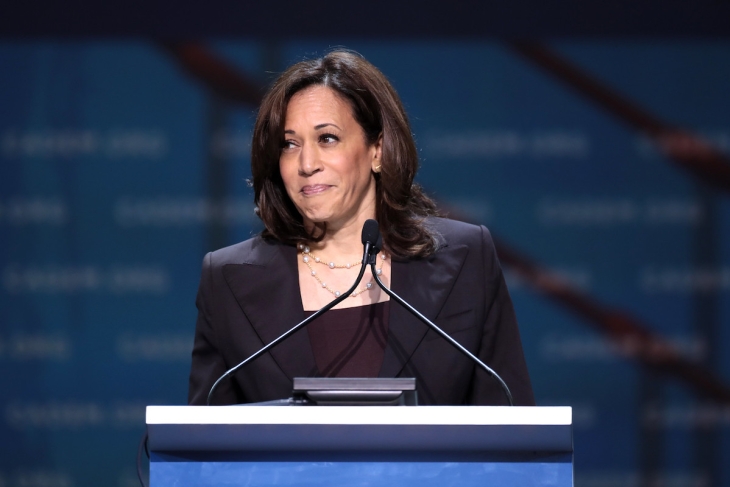With everything going on in the world, one can be forgiven for forgetting that we’re in the midst of an election year. But in 167 days, Americans will decide whether to give President Trump four more years. Joe Biden has essentially locked up the Democratic nomination, so the next big question is whom he will tap to be his running mate.
Back in March, the seventy-seven-year-old suggested that he understood the importance of the VP pick when, with Senator Kamala Harris and Governor Gretchen Whitmer standing behind him, he said, “Look, I view myself as a bridge, not as anything else. There’s an entire generation of leaders you saw stand behind me. They are the future of this country.” These words suggest that, if Biden wins, his VP selection could be one of the most consequential in modern political history, given that Uncle Joe is unlikely to serve more than one term. And because the former vice president has already committed to selecting a woman, her views on education will be important to consider, as they could potentially shape how things play out in our sector over the next four to eight or even twelve years.
Who will be the Democratic VP nominee? Let’s take a look at some of the top prospects according to the Washington Post and their views on education:
- Sen. Kamala Harris (CA): Sure, California is dependably blue regardless of who’s in the race, but some argue that Harris would bring much needed enthusiasm to the campaign. On education, she was first out of the gate last year with a proposal to increase teacher pay at a cost of $300 billion over ten years, though it’s unclear how anything like that would be remotely possible now with the looming economic shortfalls. Harris is also remembered for launching a pointed attack at Biden on school busing and desegregation, but she ended up backpedaling when pressed on her own views. All told, what she’s said on education hews tightly to the union playbook.
- Sen. Amy Klobuchar (MN): Boasting centrist credentials, Klobuchar—who earned the praise of conservative columnist George Will—would be viewed as a pragmatic selection. She’s used her own family’s trying ordeal to raise awareness of the coronavirus. Klobuchar’s record on education is relatively thin, and she notably dropped out of the race prior to releasing a K–12 education plan. On the campaign trail, she often drew attention to her mother’s role as a public school teacher and the need for more mental health services in schools.
- Stacey Abrams (GA): Of all the women actively auditioning for the veepstakes, none has done so more conspicuously than former Georgia gubernatorial candidate Stacey Abrams—who has been unusually direct in gunning for the job. Her outlandish bravado belies her timid beliefs on education, especially her votes against creating a statewide charter authorizer and empowering state takeover of low-performing schools.
- Gov. Michelle Lujan Grisham (NM): A three-term congressional veteran who served as chair of the Congressional Hispanic Caucus, Lujan Grisham is one of a handful of governors who would bring experience governing a state through the coronavirus pandemic to the Democratic ticket. But she created an educational crisis of her own by campaigning on dismantling New Mexico’s reform edifice. Indeed, with a stroke of the pen on her first days in office, Lujan Grisham withdrew from the PARCC consortium and decoupled teacher evaluation from student performance. One would be hard pressed to identify another state that has done as dramatic a 180 on reform as New Mexico has under her watch.
- Gov. Gretchen Whitmer (MI): Representing one of three “Blue Wall” states that Trump narrowly carried in 2016 (the others being Pennsylvania and Wisconsin), Whitmer makes a ton of sense strategically. Up until very recently, her stock had been rising, in no small part due to her being one of the current president’s most vocal critics during this pandemic. Unfortunately, her combative approach doesn’t neatly translate to schools. After taking a tough stance against a low-performing high school in Benton Harbor, she backed down from her threats of closure. Whitmer also vetoed funding for charter schools, but the money was eventually restored. Last month, she proposed a GI Bill program for essential workers, though her legacy on education may rest with the recent settlement of a landmark federal appeals court ruling on the right to basic literacy.
- Sen. Catherine Cortez Masto (NV): As the nation’s Hispanic population continues to trend upwards, there’s a good argument to be made that a Latina should be on the ticket. Along with Lujan Grisham, Cortez Masto, the first Latina elected to the U.S. Senate, has the best shot at it, albeit a considerably long one. Elected in 2016 to fill the seat of then Democratic minority leader Harry Reid, education has not been one of Cortez Masto’s main issues. Yet this might be the best reformers can hope for in a field chock full of status quo sympathizers.
- Sen. Elizabeth Warren (MA): In her seventies as well, it’s hard to see how Warren would inspire confidence if Biden is serious about quickly passing the torch. An unapologetic technocrat, Warren had a plan for everything during her campaign, including an $800 billion one for education that my colleague Checker Finn described as “pretty awful.” Suffice it to say, she would be the least encouraging choice for reformers.
- Sen. Tammy Duckworth (IL): A combat veteran who lost both of her legs in the Iraq War, Duckworth, a religiously unaffiliated Asian American, would be seen as a middle-of-the road choice. More workhorse than show horse when compared to others, her personal record of service and sacrifice would make a formidable addition to the ticket. However, Duckworth’s record on education is far less impressive. She’s against private school choice of all stripes, and is a reliable ally of the teachers unions.
- Sen. Tammy Baldwin (WI): Being the first openly gay person ever elected to the U.S. Senate, and from a true battleground state no less, Baldwin would be a low-profile choice who checks off a number of boxes for Democrats. She’s served on the Senate education committee since she was first elected to the Senate in 2012 and served in the House for fourteen years before that, where her focus has been on higher ed, career and technical education, and combatting the opioid scourge. Otherwise, her record in supporting the education establishment is nothing to write home about.
Taken together, there’s not much to get excited about vis-à-vis the contenders. Most of them are content to plagiarize from the unions’ talking points, and those that haven’t have been relatively mum on the subject. The theatrics of his unity task force aside, it seems likely that Biden will be thinking more about the crisis and the economy than about education as part of the vetting process. Nevertheless, a review of their education records portends a bleak future for reform—certainly when it comes to the federal role.


